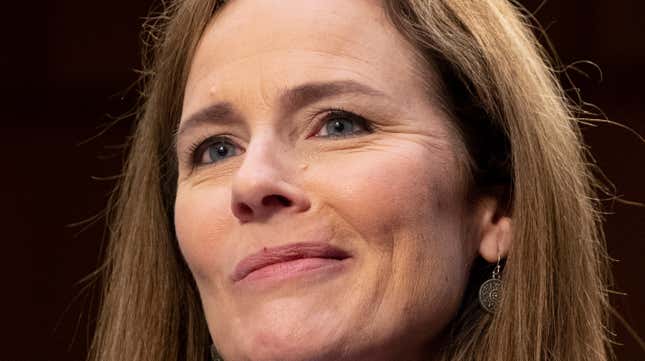Amy Coney Barrett's Recent Tenure on the Board of an Anti-LGBT School Network Is Extremely Alarming
Politics

Amy Coney Barrett, who is all but assured of being confirmed to the Supreme Court next week absent a number of Republican senators being brought low by covid-19, has largely declined to discuss her membership in People of Praise, the somewhat secretive charismatic Catholic faith group she belonged to well into her adult years and likely still is a member of today. That People of Praise and more broadly her religious faith weren’t topics of discussion during her confirmation hearings was a calculated tactic embraced by Democratic senators to focus attention instead on her alarming views on health care, reproductive rights, and voting rights in an effort to remind voters of the high stakes of the election.
But that doesn’t mean that People of Praise and Barrett’s involvement in the religious group isn’t worthy of scrutiny. Anyone who says that a judge’s personal views don’t impact how they interpret and wield the law—like Amy Coney Barrett herself has said—is, quite frankly, full of shit. During her hearings, Barrett notably refused to comment when asked about her views on key Supreme Court decisions like Obergefell v. Hodges and Lawrence v. Texas. And a deeply reported story by the Associated Press on Barrett’s association with a network of notably anti-LGBT People of Praise-affiliated private schools, ones which the AP noted “effectively barred admission to children of same-sex parents and made it plain that openly gay and lesbian teachers weren’t welcome in the classroom,” should read as a big freaking warning sign to people who care about future Supreme Court cases on LGBT rights.
-

-

-

-

-

-

-

-

-

-

-

-

-

-

-

-

-

-

-

-

-

-

-

-

-

-

-

-

-

-

-

-

-

-

-

-

-

-

-

-








































